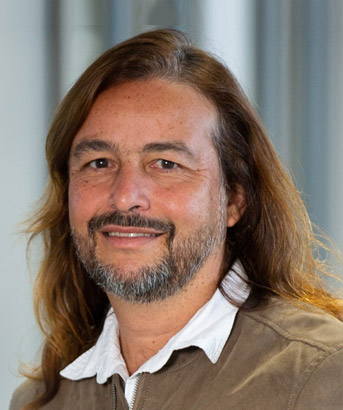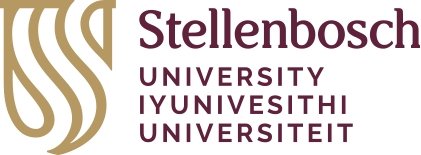
- This event has passed.
Prof Tulio de Oliveira
September 5, 2023 @ 17:3018:30


Two decades of genomics excellence: Illuminating health, fostering innovation, and cultivating transdisciplinary research in Africa
Genomics is a broad field of research that focuses on the structure, function and analysis of genomes. Genomic sequencing technologies help public health specialists and researchers understand pathogens in greater detail, allowing them to better monitor and respond to localised outbreaks and the spread of infections. Next-generation sequencing (NGS) offers a more efficient, accurate and cost-effective way for researchers to track genetic changes. Furthermore, genomics surveillance can assist with the ongoing assessment of diagnostic accuracy, which may lead to more effective treatments. With the potential to revolutionise healthcare in Africa, genomics is increasingly being used to understand diseases and epidemics, especially those that are prevalent in Africa. This lecture provides an overview of Prof Tulio de Oliveira’s two-decade-long journey of effectively applying genomics to respond to epidemics such as HIV-1, tuberculosis (TB), SARS-CoV-2 and arboviruses such as chikungunya, dengue, Zika, and yellow fever.
One notable contribution was the application of genomics to solve a case of HIV-1 and hepatitis C transmission in a Libyan hospital, where five medical doctors were jailed for infecting the patients. During his tenure at Oxford University, Prof De Oliveira led a team who not only unequivocally established the doctors’ innocence, but also secured their release. Another key contribution was the use of phylogenetics to provide definitive evidence for the “cycle of HIV transmission”, revealing that young South African women are often infected by men approximately ten years their senior. This finding significantly influenced HIV prevention policies in South Africa and the rest of the world. UNAIDS rapidly adopted it as a basis for their 2016 report on the lifecycle approach to HIV, which numerous African nations subsequently used for policymaking. In addition, genomics has been applied to detect drug resistance in HIV-1 and TB and design effective, individualised treatment regimens, thereby improving treatment outcomes.
During the Covid-19 pandemic, genomic surveillance played an important part in shaping the scientific response to SARS-CoV-2. Early in the pandemic, Prof De Oliveira recognised the important role that genomic surveillance could play in responding to the virus and created a highly effective consortium in South Africa, namely the Network for Genomic Surveillance South Africa (NGS-SA). The consortium monitored genetic changes that affect pathogenicity, diagnostics, and therapeutics and vaccines, and managed to identify two of the five SARS-CoV-2 variants of concern circulating in South Africa. The success of the NGS-SA lay in its ability to combine near-real-time genomic surveillance data with other epidemiological data and to rapidly analyse this to produce actionable information for public health officials and policymakers. South Africa’s efforts were recognised by the World Health Organisation (WHO) and the Africa Centre for Disease Control and Prevention (Africa CDC), and Prof De Oliveira’s research institutes in Stellenbosch and Durban were appointed as specialised genomics facilities to support genomic surveillance expansion in Africa.
NGS techniques are now being used to sustain the momentum gained during the Covid-19 crisis to address other ongoing health challenges in South Africa and beyond. Specifically, a transdisciplinary approach that combines genomic surveillance and ecological mapping is being used to avert potential pandemics, especially those exacerbated by climate change.
WATCH THE INAUGURAL LECTURE HERE
Short biography
Tulio de Oliveira is the director of the Centre for Epidemic Response and Innovation (CERI) at Stellenbosch University (SU) as well as the KwaZulu-Natal Research Innovation and Sequencing Platform (KRISP) at the University of KwaZulu-Natal (UKZN). He played a leading role in the Covid-19 response in South Africa through his visionary application of genomics and bioinformatics. Prof De Oliveira is a professor of Bioinformatics at SU’s School for Data Science and Computational Thinking and at UKZN’s College of Health Sciences.
He obtained his BSc at the Federal University of Rio Grande do Sul in Brazil, and his MSc/PhD at the Nelson R Mandela School of Medicine at UKZN. He was a Marie Curie research fellow at the University of Oxford, United Kingdom, from 2004 to 2006, and a Newton advanced fellow at the Wellcome Trust Sanger Institute (WTSI) and the University of Edinburgh, Scotland, from 2015 to 2019. In 2015, he became a professor at UKZN and joined the University of Washington in the United States as an associate professor of Global Health in 2018. He assumed professorship at SU in 2021.
Prof De Oliveira has worked with viral outbreaks for over 20 years, including HIV, hepatitis B and C, chikungunya, dengue, SARS-CoV-2, Zika and yellow fever. He has produced more than 300 publications, many of them in high-impact scientific journals.
He was included in Nature’s list of ten scientists driving scientific developments. The MIT Technology Review also acknowledged his leadership as a pioneer of one of the ten breakthrough technologies in 2022. In the same year, he received the gold medal of the South African Medical Research Council (SAMRC) for his outstanding contributions to the medical field. Additionally, the South African government bestowed on Prof De Oliveira the Batho Pele award for his remarkable societal impact, while the president of Portugal presented him with an Order of Merit. He was also the co-recipient of the German Africa Prize in 2022 for his contributions to science during the Covid-19 pandemic.

Recent Comments